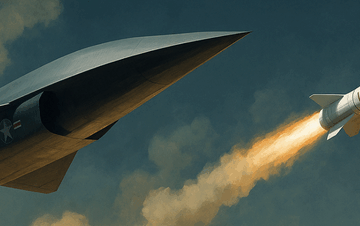This report, prepared by Peter Huessy for the week of February 22, 2025, covers various aspects of nuclear deterrence, defense budget developments, and geopolitical threats.
Key topics include the Biden administration’s approach to nuclear escalation, Senator McConnell’s retirement and his views on restoring deterrence, and Russian official Medvedev’s nuclear threats.
SecDef Hegseth seeks an additional $50 billion for top priorities, excluding nuclear deterrence from budget cuts.
The report highlights the importance of concurrent modernization work at the three ICBM bases, which could save billions.
It also discusses the U.S. Air Force missileers’ critical role in nuclear deterrence, the ethical and psychological aspects of their job, and the challenges of retaining diverse personnel.
Regarding North Korea, USAF General Jason Armagost emphasized that the U.S. can respond overwhelmingly to a North Korean ICBM attack, underscoring the strength of the U.S. nuclear deterrence system.
The report also touches on the potential for arms control negotiations with Russia and China, with President Trump expressing a desire for “denuclearization.”
However, the feasibility of such agreements remains uncertain, given the geopolitical complexities and the need for the U.S. to maintain a competitive edge in military capabilities.
MUST READ: The most awe-inspiring piece of the report is about “RESPONSIBILITY” from the Christian Science Monitor, dated February 14, 2025, which provides an in-depth look at the lives and duties of U.S. Air Force missileers stationed at F.E. Warren Air Force Base.

- It highlights their critical role in nuclear deterrence, the gravity of their mission, and the personal and ethical complexities they face.
- The article follows missileers during their 24-hour shifts, emphasizing their readiness and strict operational protocols.
- It also explores the mental burden and moral dilemmas they encounter, particularly in the context of faith.
- The piece touches on the historical context of missileers, their continued relevance, and the growing nuclear threats from Russia, China, and Iran.
- Additionally, it discusses the challenges of attracting and retaining personnel, especially women and minorities, within this demanding career field.
- The article underscores the human element of nuclear deterrence, the operational challenges of aging systems, and the evolving nuclear landscape.
Overall, the report underscores the need for robust defense investments, the challenges of modernizing nuclear forces, and the geopolitical threats posed by adversaries like Russia, China, and North Korea.
About the Author

Peter Huessy
Mr. Peter Huessy is President of his own defense consulting firm, Geostrategic Analysis, founded in 1981, and through 2021, Director of Strategic Deterrent Studies at the Mitchell Institute on Aerospace Studies. He was the senior defense consultant at the National Defense University Foundation for 22 years. He was the National Security Fellow at the AFPC, and Senior Defense Consultant at the Air Force Association from 2011-2016.
Mr. Huessy has served as an expert defense and national security analyst for over 50 years, helping his clients cover congressional activities, arms control group efforts, nuclear armed states actions, and US administration nuclear related policy, budgets, and strategies, while monitoring budget and policy developments on nuclear deterrence, ICBM modernization, nuclear arms control, and overall nuclear modernization.
He has also covered nuclear terrorism, counterterrorism, immigration, state-sponsored terrorism, missile defense, weapons of mass destruction, especially US-Israeli joint defense efforts, nuclear deterrence, arms control, proliferation, as well as tactical and strategic air, airlift, space and nuclear matters and such state and non-state actors as North Korea, China, Iran, Syria, Venezuela and Hezbollah, Hamas, and Al Qaeda. This also includes monitoring activities of think tanks, non-governmental organizations, and other US government departments, as well as projecting future actions of Congress in this area. His specialty is developing and implementing public policy campaigns to secure support for important national security objectives. And analyzing nuclear related technology and its impact on public policy, a study of which he prepared for the Aerospace Corporation in 2019.




